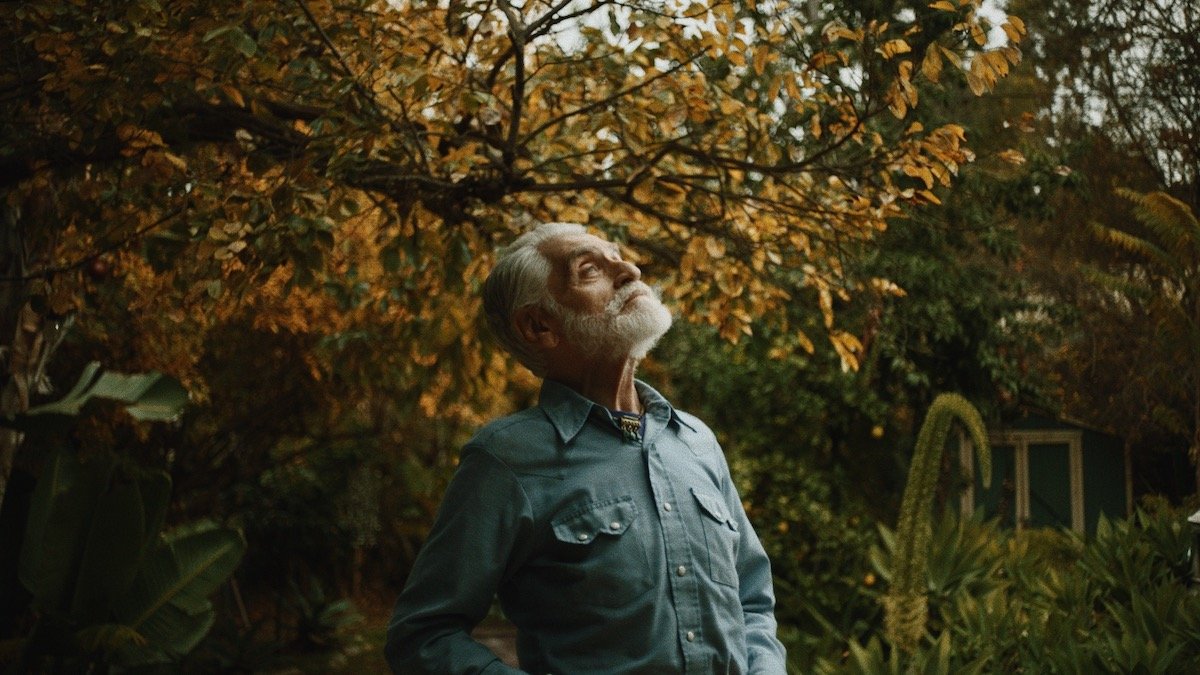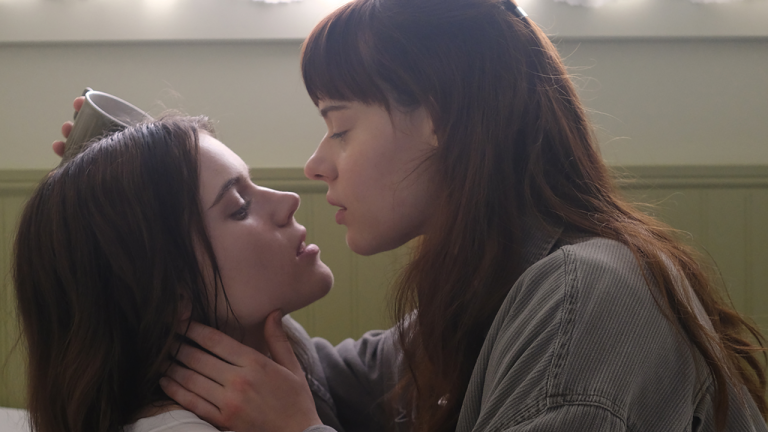Moon Manor begins with an odd premise. A man in his late eighties has hired a journalist, setting up an opportunity to oversee and design his own obituary, with full agency. Jimmy’s decision to take his own life for reasons that slowly unravel unfolds with a spirit of joy and celebration of the mortal moment. Moon Manor is filled with this joyousness that keeps tailing the obviousness of grief and aches which permeate Jimmy’s debilitating mind. Jimmy suffers from Alzheimer’s; as he describes it himself, all his memories are like cabinets that are losing all stable arrangements and he cannot restore and reassemble them properly. What purpose would his body serve if his mind is no longer functional? He explains his reasoning to his close ones, who are unable to fathom his state of mind that has led him to such a conceivably wild choice of resisting the full course of life.
Jimmy is presented as a person who laces everything with traces of the jovial and lightness and energy. His life is a spent one but we can notice what once was, through his demeanor to his caretaker. His caretaker lavishes affection and concern with utmost sincerity and genuine emotion, immediately conveying the strong emotional bonds Jimmy is able to create. He is a person who sparks an easy familiarity among strangers, building deep connections within a short span of time. He says he sells whimsy; he likes to make people reconnect with their childlike inner selves. He shows his room decked with all sorts of the peculiarities he peddled in, articles which impress on the visitor with their immediate amusement but also illuminate his positively inclined spirit that constantly sought to deflect attention from the bleakness in one’s life. His pet project was Lunartics, which made people believe they could trade in celestial real estate. The journalist is initially skeptical of the man’s philosophy but he soon is won over, despite a crucial aspect to the association with Jimmy collapsing in the interim.
Related to Moon Manor – Malmkrog [2020]: ‘MUBI’ Review – The Talking Cure for Elites
Jimmy is also trailed by the deluded imaginings of his death which he sees every now and then as a treelike humanoid figure. The scenes are clumsy and stodgily handled and downright pointless, after a while, feeling increasingly repetitive of no particular purpose but just interposed as cruel abrupt reminders of his mission. Jimmy has called in picketers too, to insert some drama into the situation, a participant including his own brother, who genuinely refuses to accept and agree to his orchestrated death. Jimmy’s most defining relationship that guided the trajectory of his final decision comes through in flashback, as his lover, Ricky’s significance in his life, shines across. They met in auditions for a Broadway musical which he emphasizes was radical then; Jimmy landed the gig, Ricky didn’t. But Ricky’s flamboyant daring ideas became an anchorage for the then unsure Jimmy, facilitating a partnership that went on for eighteen years, terminated by the HIV epidemic.
The love in Jimmy’s voice as he recalls Ricky is vast and genuinely touching, their first encounter scene executed in a fuss-free manner. A ‘death dueler’ makes an entrance, hired by Jimmy to enable a seamless, comforting transition to the afterlife, based on the rituals enshrined in the Tibetan Book of the Dead. The house starts filling up with Jimmy’s carefully chosen guests. He devises observation exercises in the garden that his guests have to try out, all specifically tailored and structured to tap into living the present moment as truthfully and as perfectly and honestly attuned as possible. The goal is to cut off the unnecessary noise of superfluity that may lead one astray and lose sheer focus on one’s priorities and the inherent richness of life, that gets swamped into oblivion by the juggernaut of overwhelming obligations.
An anecdote of a close friend, who hosts the party celebrations, brings out the film’s thematic interests in the art of dying, to take it with a certain lightness and revel in it, to design by oneself and seize agency on how to pass on; none of the sappiness or the toughness of a transition to afterlife traditionally perceived as draining is indulged in. No matter how actually averse the circumstance is to the act of living and somehow finding meaning in things despite gradual and amplifying losses, the directors, Erin Granat and Elizabeth Brissenden, consistently zoom in on death with a perspective on larger than life bizarreness and madcap energy that is infectious and vibrant, visually epitomized through the treatment of the pre climactic gathering scene.
Also, Read – In the Shadow of the Moon Netflix (2019) Review: Jim Mickle’s Weakest
Moon Manor hugely benefits from Brissenden’s own crisp editing that stays firmly clued into the delightful, warm, uplifting, and ultimately moving tone the film glides in, very neatly. It also has an absolutely show-stoppingly electric dance scene, where the forging with the past is solidified in a warm embrace with the inevitable choice. However few things just don’t work. The tired track of an outsider rookie coming in with detachment for his own purpose, which may not pan out, but his attitude shift is necessitated invariably in the familiarization and intimacy with his subject, is added in the film lazily, moving to predictable conclusions. The death dueler also is endowed with a certain eccentric demeanor, which strikes all the wrong notes and feels wholly unnecessary. While the ensemble of characters individually isn’t well etched, rather bundled with shticks, when they are all in the same scene, however, they manage to create a lovely dynamic, honest and genuine in their interactions.







![Aamis (Ravening) [2019]: ‘Tribeca’ Review – The true horrors of suppressing desire](https://79468c92.delivery.rocketcdn.me/wp-content/uploads/2019/05/Aamis-TRIBECA-Highonfilms1-768x525.jpg)

![The Gold-Laden Sheep & The Sacred Mountain [2018]: ‘DIFF’ Review- A Sensory Experience](https://79468c92.delivery.rocketcdn.me/wp-content/uploads/2018/11/gold-laden-768x432.jpg)